
Raka Banerjee – Songs from the Tea Gardens
Raka Banerjee is a young student who is interested in questions of journey, identity and belonging. She grew up in Kolkata and after college, went to Mumbai for her Masters. Even though she has lived between places, she feels that she ‘belongs’ to the foothills district of Jalpaiguri in North Bengal, where her ancestral home is. These songs were recorded by her in 2013, as part of her research on the topic of ‘Folk-songs of the Tea Plantations of North Bengal: A Thematic Analysis of the Folk-Songs of Dooars Region in North Bengal’, at the Tata Institute of Social Sciences, Mumbai. Raka is about to embark on her doctoral research, furthering her exploration of the themes of migration and belonging. These songs connect with The Travelling Archives’s own recordings in the tea gardens of North Bengal and Sylhet in Bangladesh, and in Purulia, bordering Jharkhand in the western end of West Bengal. Giving us these audio recordings and photographs to put on our site, Raka wrote: ‘It is really heartening to be able to share these with you. In a sense, I feel as if these recordings, and the stories of the people singing here, have reached home.’ The following notes are also written by her.
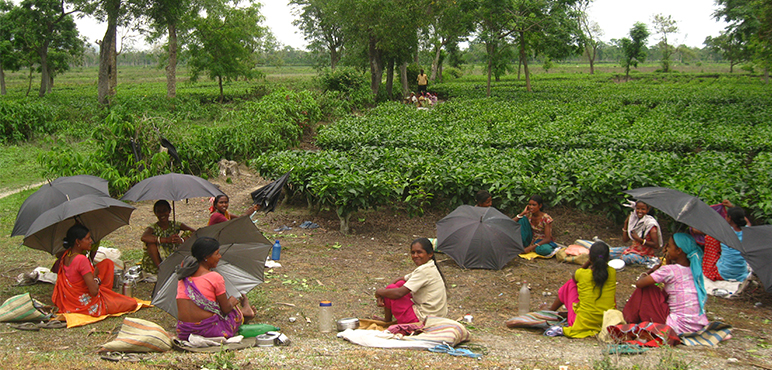
Women tea workers at lunch-break
The songs
The songs were recorded in April-May of 2013 in the tea estates of Jalpaiguri district. The tea estate population is primarily Sadri-speaking and trace their origin to the Chhotanagpur plateau region – present day states of Madhya Pradesh, Chhattisgarh, Odisha, Jharkhand and Bihar – who were brought to work in the newly established tea plantations of Dooars during the 1860s. My performers were fourth generation inhabitants of the tea plantations.
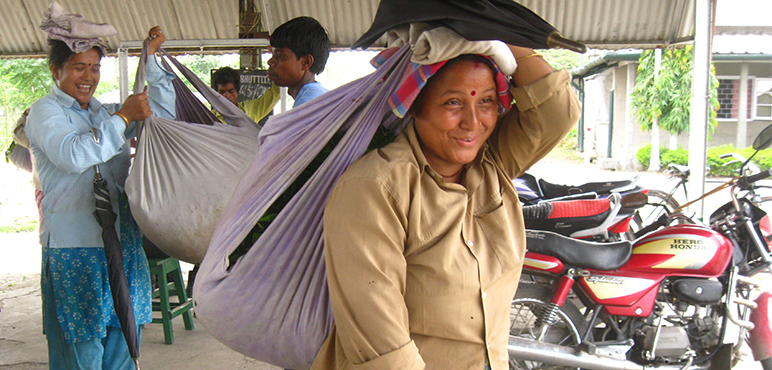
Women tea workers after weighing, off to home
Denge Deng Mela: Sung by Anodh Tirkey of Kurti Tea Estate, Nagrakata block in Malbazar subdivision of Jalpaiguri district in West Bengal, the original composition by Vinod Tirkey – Anodh’s elder brother – narrates the work-day in a tea plantation. Work is not easy in the garden; plucking, weeding and allied tasks drain the workers of their ardour, and the work, finally, is for the ‘company’s’ benefit. Themes of labour, fatigue and alienation emerge strongly in this original composition.
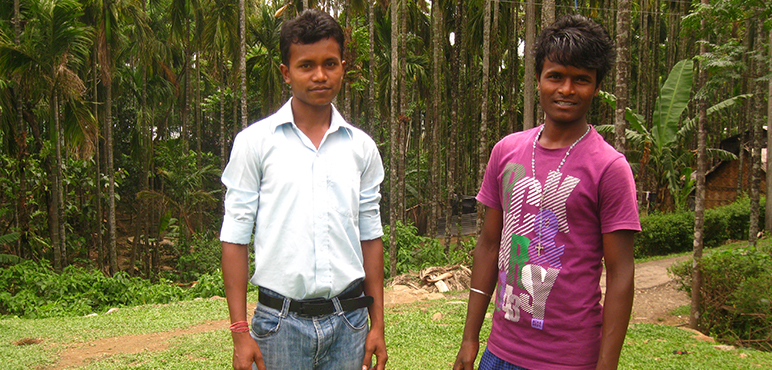
Anodh Tirkey of Kurti Tea Estate with friend
Jhimir Jhimir: This is an original composition by Arbind Bengra of Jaibirpara Tea Estate, Madarihat-Birpara block of (now) Alipurduar district in West Bengal. This composition, too, describes the work-day in the tea garden, in particular, a monsoon work-day where the worker’s foul mood is of no consideration in assigning them tasks.
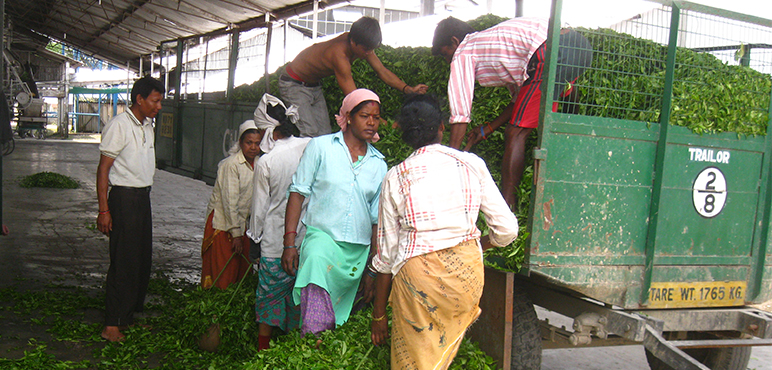
Women at work in the factory
Karam: The ‘Karam’ song is sung in celebration of Karam puja. A branch of the karam plant is the deity. The festival is common to most Sadri-speaking communities, though the day of celebration differs from one tribal community to the other. Understood as an agricultural festival, Karam puja is the celebration of creation, nature and life itself. The song was sung to me by Pratima Mary Xess of Kurti Tea Estate, Nagrakata block in Malbazar subdivision of Jalpaiguri district in West Bengal.
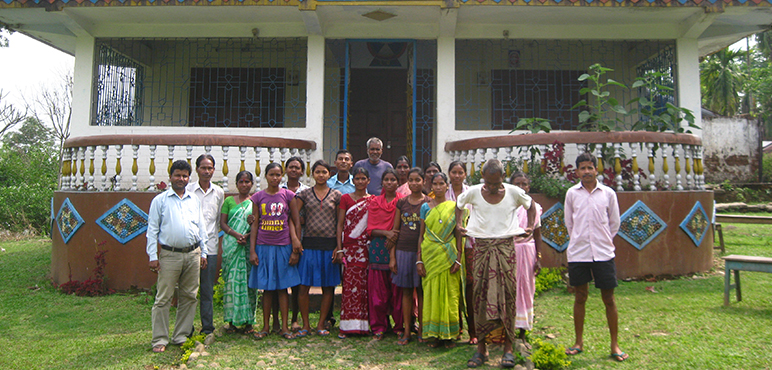
Folk-team at Ghatia Tea Estate, Nagrakata
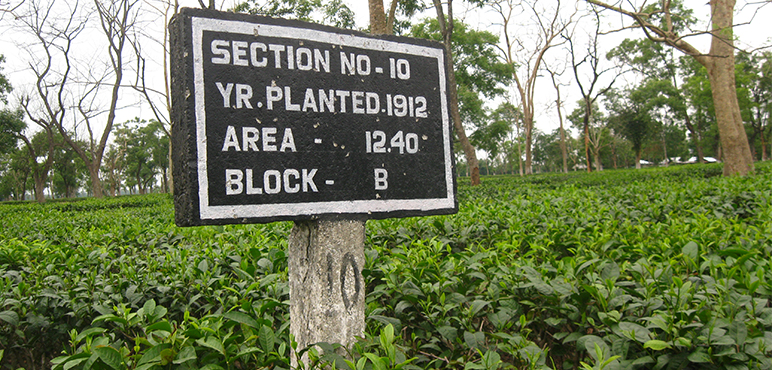
Closed Dheklapara Tea Estate
- Letter from Mainadal (At the time of Covid-19)
- Sound Expeditions : Recording Tarak Das Baul in Kenduli
- Letters from Mainadal
- Mary Frances Dunham’s work on jarigan songs.
- Muhammad Ali Ahsan’s recordings, আলীর ডাইরি
- Surojit Sen writes about his experience of engaging with fakiri songs
- Debdas Baul on Bhaskar Bhattacharjya, documentary filmmaker, who worked on the bauls.
- Video extracts from Ruchir Joshi’s 1992 film on the bauls, Egaro Mile (Eleven Miles) and his letter about making the film
- Soumya Chakravarti account of recording folk singer Anantabala Baishnabi in 1968.
- Arnold Bake’s 1932-33 films and audio recordings from Bengal
- Interview with Amy Catlin Jairazbhoy
- Extracts from Khaled Chowdhury’s interview
